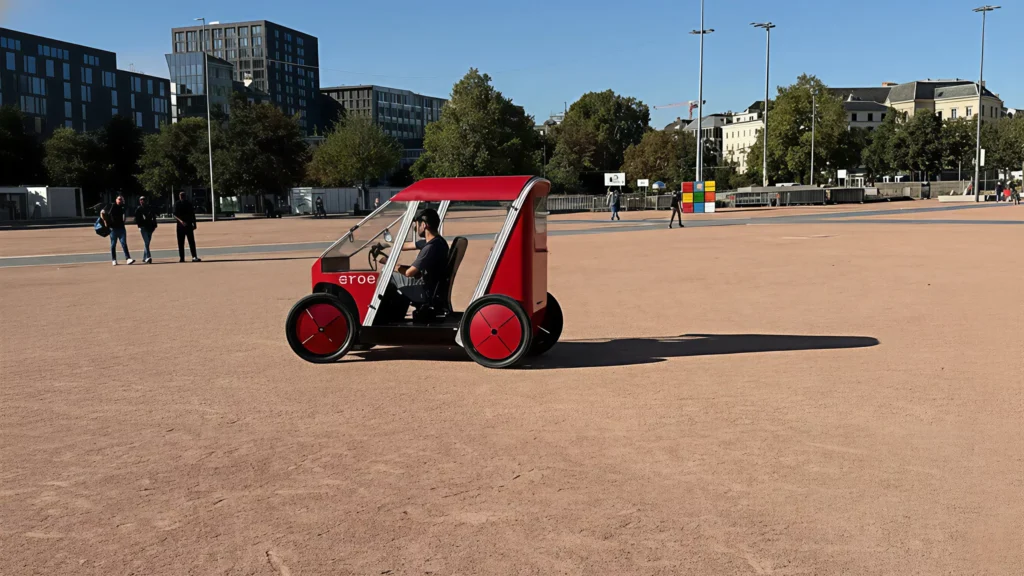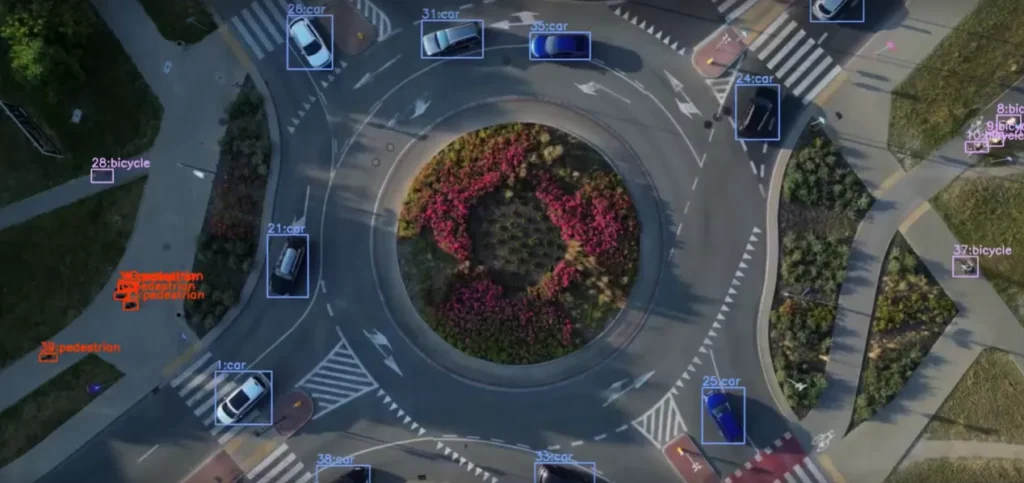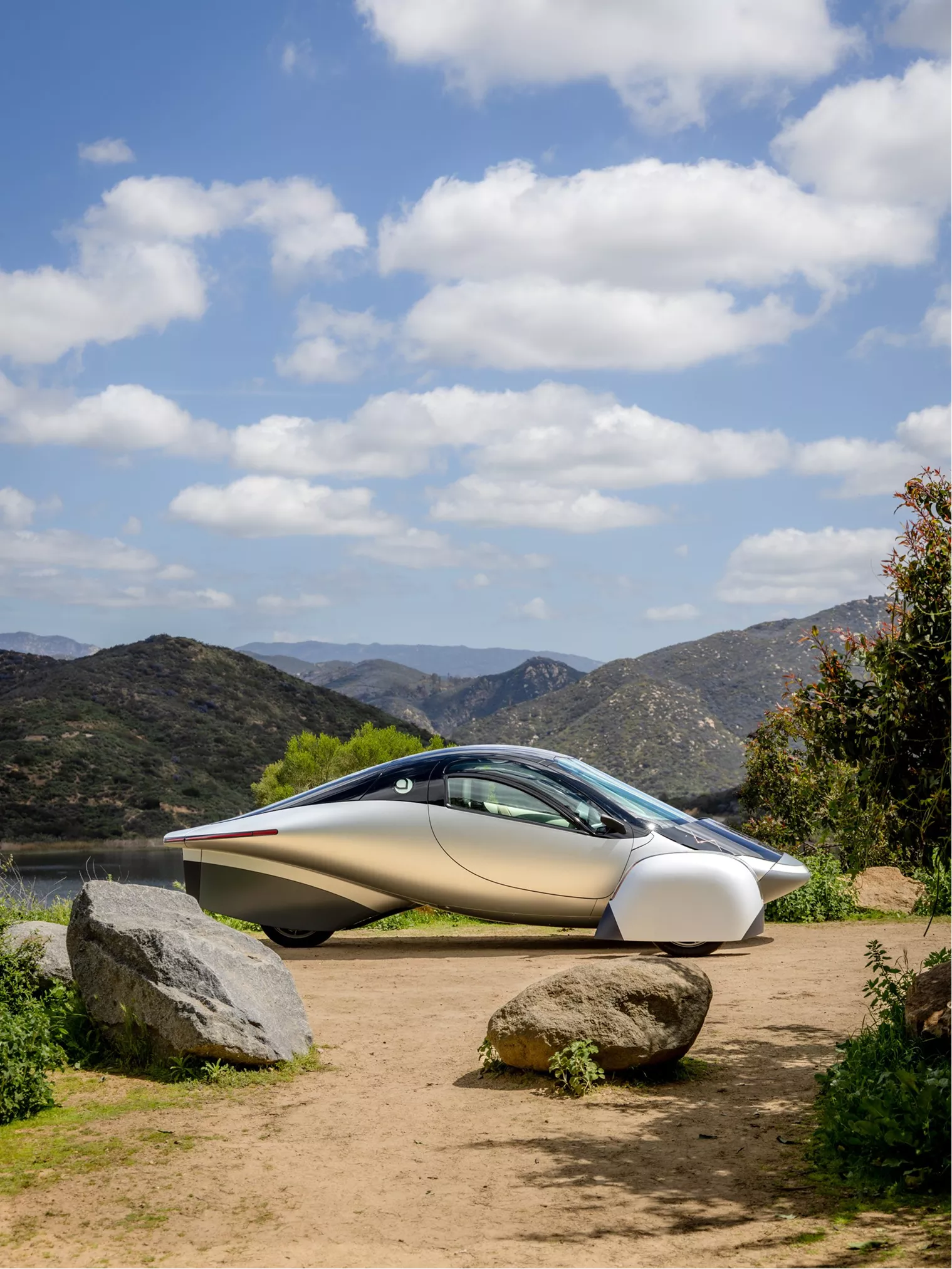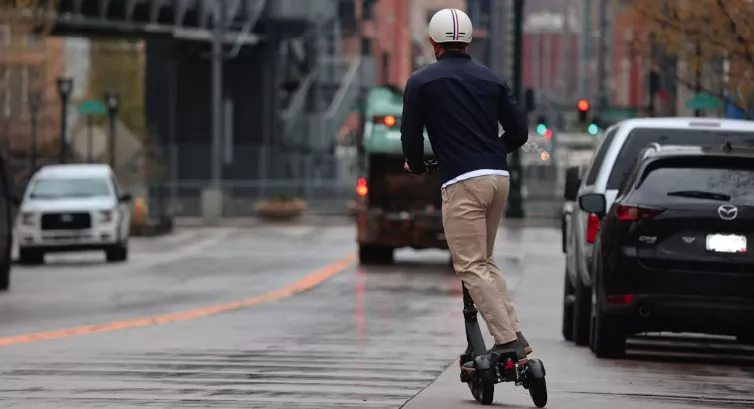






From EVs and batteries to autonomous vehicles and urban transport, we cover what actually matters. Delivered to your inbox weekly.

Denver has enacted new regulations for shared e-scooters and e-bikes in response to rising crash rates and public space conflicts. As of May 21, all devices operated in the city must include sidewalk detection technology and be parked in designated areas in key neighborhoods. The measures were passed unanimously by the Denver City Council.
The changes apply to Lime and Bird, the two companies currently operating shared micromobility services in the city. Both companies supported the legislation. The rules are designed to keep riders off sidewalks — where e-scooter and e-bike use is illegal — and to reduce clutter in high-traffic pedestrian areas like downtown Denver and Five Points.
The sidewalk detection requirement mandates real-time sensing systems that can identify when a device is being operated on a sidewalk. These systems typically use onboard GPS and sensor fusion to trigger automated slowdowns or alerts.
Parking rules require vehicles to be returned to designated corrals or geo-fenced areas. Failure to comply could result in penalties for operators.
Councilmember Chris Hinds, who sponsored the legislation, framed the move as a public safety measure.
“We know these changes will increase operating costs, but they’re necessary for protecting lives and ensuring these services are compatible with city infrastructure.”
— Chris Hinds, Denver City Councilmember
Hinds also pointed to micromobility as a tool for reducing single-occupancy car trips, if properly regulated.
Micromobility use in Denver continues to grow rapidly. In just the first three months of 2025, over 1 million trips were logged on shared scooters and e-bikes. The city has struggled with complaints about sidewalk obstruction, erratic riding behavior, and collision risks — particularly in dense areas with mixed pedestrian traffic.
The rule change comes as Lime introduces its newest model, the LimeGlider, in Denver. The Glider is a throttle-based electric bike that doesn’t require pedaling. Denver is one of only a few cities globally to receive the model during its limited launch phase, signaling the company’s continued investment in the local market even amid tighter regulatory demands.
The city’s new policy places Denver among a growing group of U.S. cities pushing for stronger controls on micromobility systems. By mandating hardware upgrades and stricter parking enforcement, it shifts responsibility for safety and space management back onto operators, making shared mobility viable only when integrated cleanly into the urban environment.